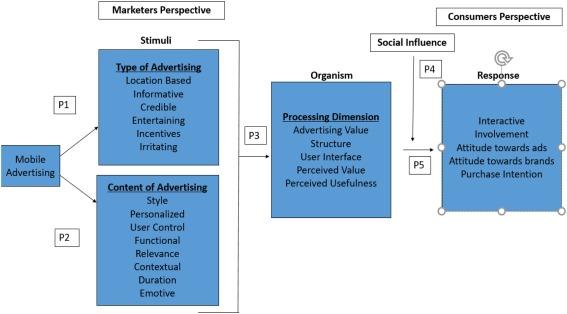future-Proof Skills: How to Prepare Students for Tomorrow’s Jobs
The world of work is evolving at an unprecedented pace. Automation, artificial intelligence, and digital change are reshaping industries, making it crucial for educators, parents, and institutions to focus on future-proof skills. These essential abilities prepare today’s students for the jobs of tomorrow—many of which haven’t even been invented yet. In this comprehensive guide, we’ll explore the most important future-ready skills, why they matter, and actionable strategies to help students thrive in a rapidly changing job market.
What Are Future-Proof Skills?
Future-proof skills are adaptable competencies that remain valuable in the face of technological and economic changes. Unlike job-specific knowledge, these skills empower students to succeed across various fields and evolving roles. Employers are now searching for talent with critical thinking, digital literacy, emotional intelligence, and more.
- Critical thinking & problem-solving
- Dialog & collaboration
- Creativity & innovation
- Digital literacy & tech fluency
- Emotional intelligence
- Adaptability & resilience
- Entrepreneurial mindset
- Global & cross-cultural awareness
- Data literacy
Why Are Future-Ready Skills Critically important?
The demand for future-proof skills is driven by several trends,including automation,remote work,and globalization.According to the World Economic Forum, 44% of core skills required for workers will change by 2027. This means students need to learn not only current technologies and knowledge, but also how to adapt, learn, and thrive amid change.
- Workforce transformation: Many jobs will be automated, while entirely new careers will emerge.
- Digital revolution: every field increasingly relies on technology, making digital skills essential.
- Soft skills matter: Skills like collaboration,problem-solving,and empathy are more necessary than ever.
- Lifelong learning: Students must learn how to learn for ongoing personal and career success.
Key Future-Proof Skills to Cultivate
1. Critical thinking and Problem-Solving
Automation excels at routine tasks, but humans outperform machines when it comes to complex problem-solving. Teaching students to question assumptions, analyze data critically, and generate effective solutions is vital.
2. Digital Literacy and Technology Fluency
Students need more than basic computer skills—they must be cozy with new technologies, understand digital ethics, and embrace continuous tech learning, from coding to digital art.
3. Communication and Collaboration
Clear communication, teamwork, and cross-disciplinary collaboration are top priorities for modern employers. Activities like group projects and presentations reinforce these abilities.
4. Creativity and Innovation
The ability to think outside the box,develop novel ideas,and apply creative solutions will set future employees apart in a rapidly changing job market.
5. emotional Intelligence (EQ)
Social skills, self-awareness, and empathy drive effective leadership and cooperation. Teaching mindfulness, conflict resolution, and active listening can boost students’ EQ.
6. Adaptability and Resilience
Change is constant. Helping students embrace setbacks as opportunities,navigate ambiguity,and develop coping strategies is essential for resilience.
7. Entrepreneurial Mindset
Encouraging risk-taking, initiative, and curiosity prepares students for both traditional jobs and entrepreneurial ventures.
8.Data literacy
Ability to understand,interpret,and leverage data is vital in business,healthcare,science,and beyond.
Practical Tips: Preparing Students for tomorrow’s Jobs
- Integrate technology across the curriculum: Use coding activities, digital storytelling, and data analysis exercises in various subjects.
- Create real-world learning experiences: Use project-based learning (PBL) where students solve authentic problems.
- Teach metacognition: Help students reflect on how they learn best and adapt study strategies accordingly.
- Foster cross-disciplinary projects: mix science, art, math, and language learning for holistic understanding.
- Encourage peer collaboration: Group projects and collaborative technology platforms build teamwork and communication skills.
- Promote growth mindset: Celebrate effort, experimentation, and learning from mistakes.
- Partner with local businesses and entrepreneurs: Organize internships, expert talks, and mentorship programs.
- Support continuous learning: Encourage online courses, workshops, and self-reliant projects outside the classroom.
Case Studies: Schools Success in Developing Future-Ready Students
case Study: Finland’s Phenomenon-Based Learning
Finland, renowned for innovative education, introduced phenomenon-based learning where students tackle real-world themes like climate change or entrepreneurship. This approach develops critical thinking, adaptability, and cross-disciplinary competence—core future-proof skills.
Case Study: High Tech High, USA
high Tech High uses project-based learning, integrating technical and soft skills. Students work in teams to tackle complex design challenges, present to real audiences, and reflect on their learning—mirroring the future workplace.
Benefits of Developing Future-Proof competencies
- career adaptability: Seamless adjustment to changing job roles and emerging industries
- Higher employability: desirable skills make graduates competitive on the job market
- Improved problem-solving and innovation: Better prepared to tackle the world’s big challenges
- Stronger mental health and resilience: Equipped to handle uncertainty and setbacks
- Empowerment: Students are confident, self-directed lifelong learners
First-Hand Experience: A Teacher’s perspective
“I’ve seen how integrating technology and real-world learning has transformed my students. When they code robots in teams or pitch business ideas, they learn to collaborate, problem-solve, and innovate. They’re not just mastering content—they’re preparing to thrive, no matter what the future holds.”
— Sarah M., Middle School Teacher
How Parents and Communities can definitely help
- Encourage curiosity—help students explore interests and ask questions beyond the classroom.
- Support extracurriculars—activities like robotics clubs, debate, or volunteering build a wide range of skills.
- Model lifelong learning by taking courses and being open to new technologies.
- Create mentorship and networking opportunities with professionals from diverse fields.
- Cultivate resilience—discuss failure as part of learning and growth.
Conclusion: Future-Proofing Education for Tomorrow’s world
The future is unpredictable, but one thing is certain: future-proof skills are key to success in tomorrow’s rapidly changing jobs landscape. By integrating adaptability, critical thinking, tech fluency, and emotional intelligence into learning, educators and communities can future-ready today’s students. Weather you’re a teacher, parent, or policymaker, your role in championing these skills is vital. Let’s invest in skills that will empower the next generation to thrive—no matter what the future brings.
Stay ahead by prioritizing future-ready education—as preparing students for tomorrow means focusing on the skills they’ll always need to succeed.

